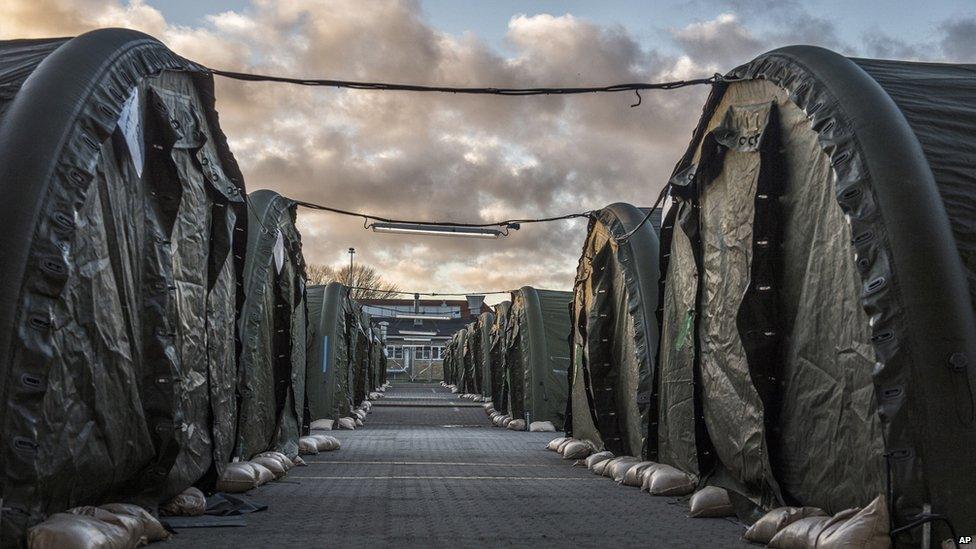Denmark plan to seize migrants' assets draws protests
- Published

A new camp in Vordingborg, 100 km south of Copenhagen, is meant to house up to 2,000 migrants
A Danish government proposal to seize assets of asylum-seekers to make them pay for their keep has drawn sharp criticism in international media.
Integration Minister Inger Stoejberg said police should be allowed to seize valuables to make them pay for housing, healthcare and some education.
She likened migrants to jobless Danes who must sell assets above a certain level to claim benefits.
Vox, external described the plan as "cruel" and the Washington Post, external, "extreme".
Denmark expects to receive around 20,000 asylum seekers this year alone, compared to 15,000 last year, the integration ministry told BBC News.
It further expects about 25,000 next year.
'Clothes and luggage'
Both the ruling centre-right Venstre party and the right-wing, anti-immigration Danish People's Party back the bill, meaning it should pass by February.
Ms Stoejberg said wedding rings, watches or items "with a sentimental value" should not be taken.
Denmark's integration ministry said in a statement, external that the bill provided the authorities with the "power to search clothes and luggage of asylum seekers - and other migrants without a permit to stay in Denmark - with a view to finding assets".
The future law will only apply to cash worth more than 3,000 kroner (£292; 402 euros; $436) and "tangible assets of a considerable value".
Zachary Whyte, an asylum and integration researcher at the University of Copenhagen, told the Washington Post: "It is pretty telling about the current Danish policies that [some] are not quite sure whether this is a hoax or not."
"Asylum seekers generally do not arrive in Denmark with large amounts of cash and jewellery," he said.
The new government has promised to get tough on immigration since its election in June. It has already slashed benefits for new arrivals and restricted the right to residency.
Thousands of refugees and other migrants have arrived in Denmark this year, many of them in transit to Sweden, after arriving illegally by sea in southern Europe.